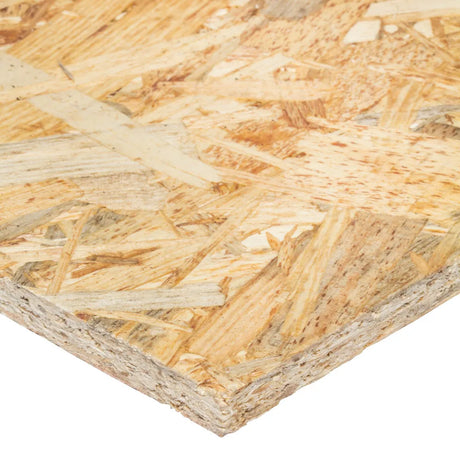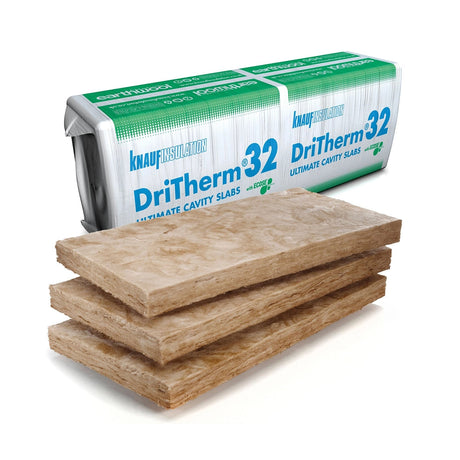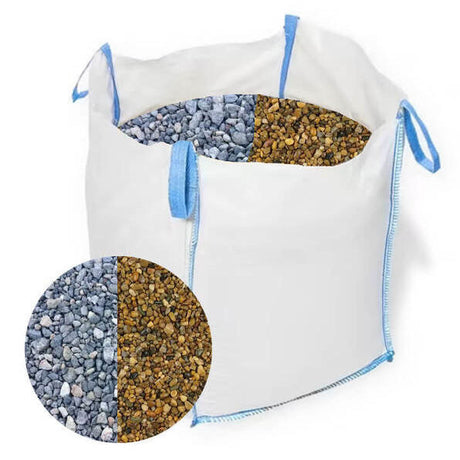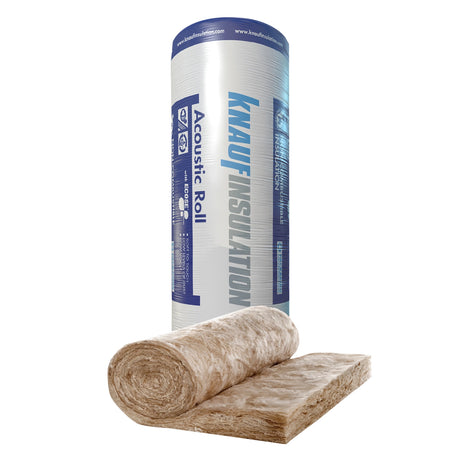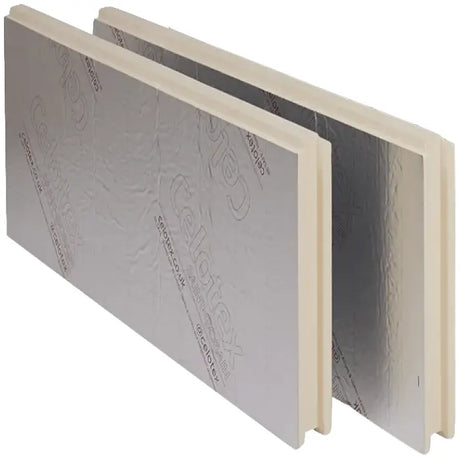When it comes to creating the perfect outdoor space, choosing the right roofing material can make all the difference between a structure that merely functions and one that truly enhances your property. Polycarbonate roofing has emerged as the go-to solution for discerning homeowners and trade professionals across the UK, offering an exceptional combination of durability, versatility, and aesthetic appeal that traditional materials simply cannot match.
At DIY Building Supplies, we've witnessed firsthand how the right polycarbonate profile can transform ordinary outdoor projects into extraordinary spaces. Whether you're designing a contemporary pergola for entertaining guests, constructing a productive greenhouse for year-round growing, or creating a practical canopy for weather protection, understanding the nuances between solid, twinwall, and corrugated polycarbonate sheets will ensure your project delivers exactly the performance and appearance you envision.
The beauty of polycarbonate roofing lies not just in its technical capabilities, but in its ability to adapt to diverse project requirements. Each profile offers distinct advantages that cater to specific needs—from the crystal-clear transparency of solid sheets that preserve stunning views, to the energy-efficient insulation properties of twinwall designs, and the budget-friendly practicality of corrugated options. This comprehensive guide will navigate you through each variant, empowering you to make an informed decision that aligns perfectly with your vision, budget, and practical requirements.
Why Choose Polycarbonate Roofing?
The superiority of polycarbonate roofing becomes immediately apparent when you consider its remarkable impact resistance capabilities. Unlike traditional glass or basic plastic alternatives, high-quality polycarbonate sheets can withstand significant impact without shattering, making them inherently safer for overhead applications. This exceptional durability stems from the material's molecular structure, which absorbs and distributes impact energy rather than failing catastrophically—a crucial safety consideration for any outdoor structure where people gather.
The advanced UV protection integrated into modern polycarbonate sheets represents another compelling advantage that sets these materials apart from alternatives. Leading UK manufacturers like Brett Martin and Palram incorporate sophisticated UV-resistant additives directly into the polymer matrix, ensuring that your roofing maintains its clarity and structural integrity for decades. This built-in protection prevents the yellowing and degradation commonly associated with lesser materials, whilst simultaneously filtering harmful UV radiation to create more comfortable spaces beneath.
Perhaps most importantly for the practical DIY enthusiast or busy tradesperson, polycarbonate sheets offer unparalleled ease of handling and installation. These lightweight panels can be cut using standard woodworking tools, drilled without special equipment, and installed by competent DIYers without requiring specialist knowledge or expensive machinery. The material's flexibility allows it to accommodate minor structural irregularities whilst maintaining weather-tight performance, and its resistance to thermal expansion ensures long-term dimensional stability across the varying temperatures experienced in the UK climate.
Solid Polycarbonate Sheets: Premium Clarity and Contemporary Appeal
Solid polycarbonate sheets represent the pinnacle of optical clarity in polymer roofing materials, offering light transmission rates that can exceed 90% whilst maintaining the safety and durability advantages of advanced plastics technology. This exceptional transparency makes them the preferred choice for applications where preserving views and maximising natural light are paramount concerns. Unlike glass, which becomes increasingly dangerous as panel sizes increase, solid polycarbonate maintains its safety characteristics even in large installations, making it ideal for expansive pergola roofing or substantial greenhouse glazing projects.
The aesthetic appeal of solid polycarbonate sheets cannot be overstated, particularly in contemporary architectural applications where clean lines and minimalist design principles prevail. These sheets create an almost invisible barrier that protects from weather whilst preserving the connection between indoor and outdoor spaces. Leading manufacturers like Lexan and Makrolon offer these products in various thicknesses from 3mm to 25mm, allowing designers to balance structural requirements with visual impact. The availability of tinted options—including bronze, grey, and opal variants—provides additional design flexibility whilst maintaining the premium appearance that solid sheets are renowned for.
However, the premium performance of solid polycarbonate sheets comes with specific considerations that must be factored into project planning. The material's density, whilst still significantly lighter than glass, requires more substantial structural support than alternative polycarbonate profiles, particularly for larger spans. Additionally, the superior optical clarity that makes these sheets so attractive also means they provide minimal thermal insulation, making them less suitable for applications where temperature control is a priority. The investment required for solid polycarbonate typically represents the highest cost option among polycarbonate variants, but this premium reflects the exceptional performance and aesthetic qualities that make these sheets the preferred choice for high-end installations.
Twinwall Polycarbonate Sheets: The Perfect Balance of Performance and Practicality
Twinwall polycarbonate sheets embody the engineering principle that optimal performance often emerges from thoughtful design rather than simply using more material. The innovative hollow chamber construction that defines these sheets creates an insulating air gap that dramatically improves thermal performance whilst maintaining excellent light transmission characteristics. This cellular structure, typically featuring chambers ranging from 4mm to 35mm in depth, provides thermal insulation values that can reduce heat loss by up to 50% compared to solid alternatives, making twinwall sheets particularly valuable for greenhouse applications and covered outdoor living spaces.
The light diffusion properties of twinwall polycarbonate create ideal growing conditions for greenhouse applications whilst simultaneously reducing glare in covered outdoor spaces. Rather than creating harsh shadows and bright spots like clear materials, the cellular structure gently scatters incoming light to create more even illumination throughout the covered area. This characteristic proves particularly beneficial for plant cultivation, where uniform light distribution promotes healthy growth, and for outdoor dining areas where reducing glare enhances comfort. Manufacturers like Palram and Ariel Plastics have refined this technology to optimise the balance between light transmission and diffusion, creating products that maximise both functional performance and user comfort.
Installation considerations for twinwall polycarbonate require attention to the unique characteristics of the cellular structure, but these requirements are well within the capabilities of competent DIY enthusiasts. The sheets require proper edge sealing using anti-dust tape and U-section profiles to prevent moisture and debris ingress into the chambers, whilst allowing for thermal expansion and contraction. The flexibility of twinwall sheets provides some tolerance for structural irregularities, but proper framing remains essential to prevent stress concentrations that could compromise long-term performance. When correctly installed with appropriate fixings and expansion allowances, twinwall polycarbonate delivers exceptional value by combining the durability advantages of premium materials with practical thermal performance that enhances user comfort throughout the year.
Corrugated Polycarbonate Sheets: Practical Solutions for Budget-Conscious Projects
Corrugated polycarbonate sheets demonstrate that exceptional functionality doesn't always require premium pricing, offering a compelling combination of weather protection, ease of installation, and cost-effectiveness that makes them ideal for a wide range of practical applications. The distinctive wave profile that characterises these sheets isn't merely aesthetic—it provides significant structural advantages that allow the material to span greater distances with minimal support whilst maintaining excellent resistance to wind loading and weather penetration.
The inherent strength characteristics of corrugated polycarbonate stem from the geometric principles that have made corrugated materials successful across numerous applications. The wave profile creates a series of structural beams that distribute loads effectively whilst adding minimal material weight, resulting in sheets that can handle substantial wind loads and snow accumulation despite their lightweight construction. This strength-to-weight ratio makes corrugated polycarbonate particularly suitable for applications where structural loading is a concern, such as covering walkways, protecting outdoor storage areas, or creating weather shields for existing structures.
From a practical installation perspective, corrugated polycarbonate sheets offer perhaps the most DIY-friendly option among polycarbonate variants. The profile naturally sheds water effectively even at relatively shallow pitches, reducing the critical tolerances required for proper drainage. The standard corrugated profile aligns with widely available support systems and fixing accessories, whilst the material's inherent flexibility accommodates minor irregularities in supporting structures. Leading UK suppliers like Brett Martin offer these sheets in standard lengths up to 4 metres, with custom lengths available for specific applications, allowing projects to be completed with minimal cutting and waste whilst maintaining the clean lines that make corrugated profiles so practical and appealing.
Understanding the Performance Characteristics: Making an Informed Choice
The optical performance characteristics of different polycarbonate profiles directly impact both the functionality and aesthetic appeal of your finished project, making this a crucial consideration in material selection. Solid polycarbonate sheets deliver uncompromising clarity that preserves views and maximises natural light transmission, making them ideal for applications where maintaining visual connections with the surrounding environment is paramount. This crystal-clear performance comes at the cost of some practicality, as the material provides minimal thermal insulation and requires more substantial structural support than alternative profiles.
Twinwall polycarbonate offers a compelling middle ground that balances optical performance with practical benefits, creating gently diffused lighting that reduces glare whilst maintaining excellent overall light levels. This diffusion proves particularly beneficial in greenhouse applications where even light distribution promotes healthy plant growth, and in covered outdoor areas where reducing harsh shadows enhances comfort and usability. The thermal insulation provided by the cellular structure makes these sheets particularly suitable for applications where temperature control matters, such as extending growing seasons in greenhouse environments or creating more comfortable outdoor living spaces.
Corrugated polycarbonate prioritises practical performance over optical perfection, delivering excellent weather protection and structural strength whilst maintaining good light transmission characteristics. The wave profile creates some visual distortion compared to flat sheets, but this trade-off delivers significant advantages in terms of structural performance, ease of installation, and cost-effectiveness. For applications where primary concerns focus on weather protection and budget constraints rather than achieving perfect optical clarity, corrugated profiles represent an excellent value proposition that doesn't compromise on essential performance characteristics.
Critical Factors for Successful Project Planning
Understanding your local weather exposure conditions forms the foundation of successful polycarbonate roofing selection, as different profiles respond differently to environmental challenges. In exposed coastal locations where high winds represent a primary concern, the structural advantages of corrugated profiles make them particularly suitable, as the wave pattern provides inherent strength that resists wind uplift forces. Conversely, in sheltered locations where aesthetic considerations take precedence, solid sheets may be specified without concern for extreme wind loading, allowing design priorities to drive material selection.
The intended purpose of your structure should fundamentally influence profile selection, with each variant offering distinct advantages for specific applications. Greenhouse projects typically benefit from the thermal insulation and light diffusion characteristics of twinwall polycarbonate, which create ideal growing conditions whilst reducing heating costs. Pergola applications might prioritise the visual clarity of solid sheets to maintain unobstructed views, whilst practical covers for walkways or storage areas might favour the cost-effectiveness and easy installation of corrugated options.
Budget considerations extend beyond simple material costs to encompass the total project expenditure, including structural support requirements, fixing systems, and installation complexity. Whilst solid polycarbonate sheets command premium pricing, they may require additional structural investment to handle their weight and span requirements. Conversely, corrugated sheets often allow simpler support structures and faster installation, potentially offsetting their material cost advantages. Twinwall options frequently represent the optimal balance between performance and cost, delivering premium functionality at moderate pricing whilst requiring standard installation techniques and support systems.
Professional Installation Guidance for Optimal Performance
The selection of appropriate fixing systems and support structures forms the cornerstone of successful polycarbonate installation, with each profile requiring specific considerations to ensure long-term performance and weather resistance. Modern fixing systems from manufacturers like SIG Roofing and Marley incorporate sophisticated sealing technologies that accommodate thermal movement whilst maintaining weather-tight performance throughout the seasons. These systems typically feature EPDM rubber seals that compress to create reliable weather barriers whilst allowing for the expansion and contraction that occurs as temperatures fluctuate throughout the UK's varied climate.
Thermal expansion represents one of the most critical considerations in polycarbonate installation, as these materials exhibit more movement than traditional roofing materials across temperature ranges. Professional installation requires expansion gaps of approximately 3mm per metre of sheet length, with these gaps being accommodated through carefully designed fixing patterns and support systems. The use of slotted holes rather than tight-fitting fixings allows sheets to move freely whilst maintaining secure attachment, preventing the stress concentrations that could lead to cracking or premature failure.
Edge sealing techniques become particularly critical when installing twinwall polycarbonate, where the cellular structure must be protected from moisture and debris ingress whilst allowing for thermal movement. Anti-dust tape applied to the lower edges prevents contamination whilst allowing air circulation, whilst U-section profiles at the upper edges provide weather protection whilst accommodating expansion. The minimum drainage slope of 5 degrees ensures effective water shedding whilst preventing ponding that could compromise long-term performance or create aesthetic issues.
Maximising Long-Term Performance and Value
The longevity of polycarbonate roofing systems depends significantly on understanding and respecting the material characteristics that influence performance over time. UV degradation, whilst minimised through modern additive technology, remains a consideration that affects material selection and positioning. Sheets with higher UV protection ratings justify their premium pricing through extended service life and maintained appearance, particularly in exposed locations where solar radiation is intense. Leading manufacturers like Palram and Brett Martin offer graduated warranty terms that reflect the relationship between UV protection levels and expected performance life.
Maintenance requirements for polycarbonate roofing remain minimal compared to traditional materials, but understanding proper care techniques ensures optimal performance throughout the material's service life. Regular cleaning using appropriate detergents maintains optical clarity whilst preventing the accumulation of debris that could trap moisture or create unsightly staining. The smooth surface of polycarbonate naturally resists algae and moss growth, but occasional cleaning maintains the aesthetic appeal that makes these materials so attractive for visible applications.
Structural considerations extend beyond initial installation to encompass the long-term stability of supporting systems under varying load conditions. The lightweight nature of polycarbonate reduces structural loads compared to traditional materials, but proper load distribution remains essential to prevent localised stress concentrations. Understanding snow loading characteristics and providing appropriate support spacing ensures that temporary load conditions don't compromise long-term structural integrity, whilst proper drainage design prevents ice accumulation that could create unexpected loading scenarios.
Making the Right Choice for Your Project
The decision between solid, twinwall, and corrugated polycarbonate ultimately reflects the balance between performance requirements, aesthetic preferences, and practical constraints that define every successful building project. Solid polycarbonate sheets excel in applications where visual clarity and premium appearance justify the additional investment in both materials and structural support, making them ideal for high-end pergolas, contemporary glazing applications, and projects where maintaining views represents a primary design objective.
Twinwall polycarbonate emerges as the optimal choice for applications requiring balanced performance across multiple criteria, delivering excellent thermal properties that enhance user comfort whilst providing good optical performance and reasonable cost-effectiveness. This profile proves particularly suitable for greenhouse applications where thermal efficiency directly impacts operational costs, and for covered outdoor living spaces where comfort considerations justify the moderate premium over basic alternatives.
Corrugated polycarbonate serves as the practical choice for projects where weather protection and structural performance take precedence over optical perfection, offering exceptional value for applications such as walkway covers, storage protection, and utilitarian structures. The ease of installation and excellent structural characteristics make this profile particularly suitable for DIY projects where minimising complexity enhances the likelihood of successful completion.
At DIY Building Supplies, our technical expertise encompasses not just material supply but comprehensive project support that ensures optimal outcomes for every application. Our team understands the nuances that distinguish successful installations from merely adequate ones, and we're committed to sharing this knowledge to help you achieve results that exceed expectations. Whether you're planning a sophisticated greenhouse installation or a practical workshop cover, our comprehensive range of polycarbonate profiles from leading UK manufacturers ensures we can supply exactly the right materials for your specific requirements.
Ready to transform your outdoor space with premium polycarbonate roofing?
Discover our complete range of solid, twinwall, and corrugated polycarbonate sheets, complete with all the fixing systems and accessories needed for professional results. Visit DIYBuildingSupplies.co.uk today and take advantage of our expert technical support to ensure your project delivers exceptional performance and lasting value.
Our Nottingham-based team combines decades of practical experience with comprehensive technical knowledge to provide the guidance and materials that make the difference between good projects and great ones. Contact us today to discuss your specific requirements and discover how the right polycarbonate profile can enhance your outdoor living experience for years to come.



